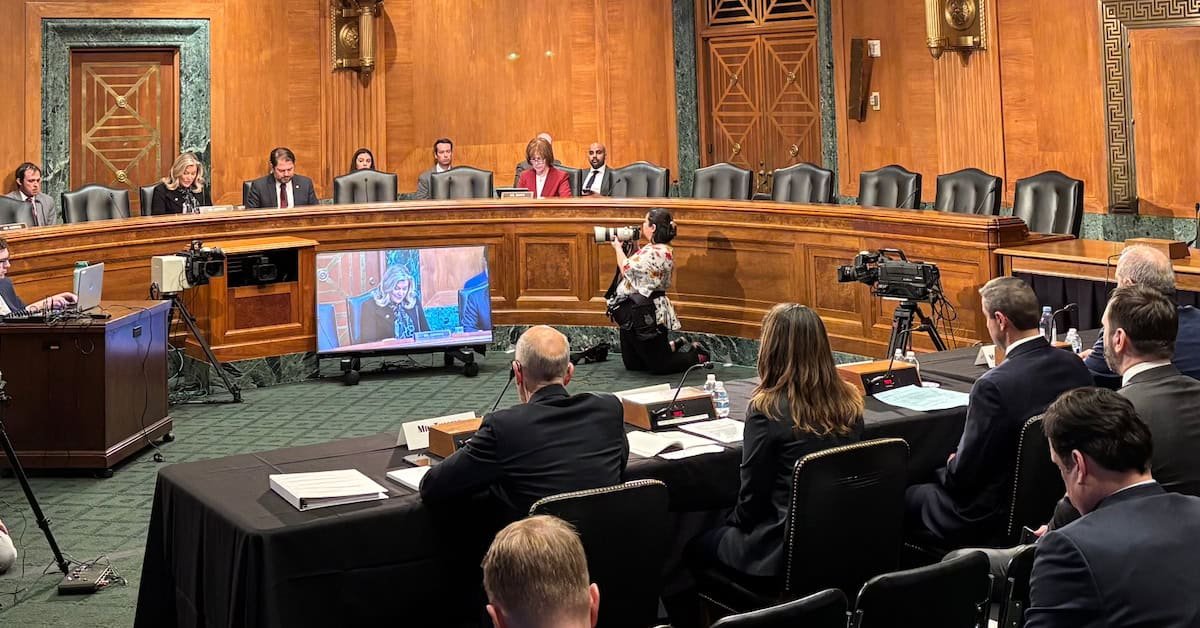Today, the subcommittee of the banking Senate for digital activities hosted its first hearing, entitled “explore the bipartisan legislative paintings for digital activities”, in which some members of the subcommittee and witnesses of the cryptocurrency sector have discussed mainly of Stablecoin regulation.
Senator Cynthia Lummis (R-Wy), a long-standing supporter of the Bitcoin and digital resource industry, presided over the hearing with the assistance of the subcommittee member, Senator Ruben Gallego (D-AZ).
The witnesses included Tim Massad, former president of the CFTC and researcher at the Kennedy School of Government of Harvard University; Jai Massari, Chief Legal Officer of Lightspark; Jonathan Jachym, global manager of policies and government relations in Kraken; and Lewis Cohen, partner of Cahill Gordon & Reindel LLP.
Putting the tone for the meeting, Senator Lummis said he intends to do his part in the passage of bipartisan legislation for Bitcoin and Stablecoins. (This was one of the few times during the meeting in which the word “bitcoin” was mentioned. One of the only ones in the hearing was mentioned was when Massad expressed that it opposed the creation of a strategic reserve of Bitcoin.)
During the hearing, Massad underlined the importance of monitoring Stablecoin transactions. He suggested to extend the “regulatory perimeter” to face the AML challenges (anti -money laundering) associated with Stablecoin and has even proposed that intelligent contracts were designed to mitigate the risk of bad actors who use them.
“[We might] Program intelligent contracts so that transactions cannot pass unless someone has been adequately controlled, “said Massad.
Massad also suggested that Stablecoin broadcasters “aggressively monitor the Stablecoin activity” as a means of keeping an eye on the violations of the AML.
Massari stressed that authorities can also monitor Stablecoin transactions, since these resources take place on public blockchains. He also asked for a sensible regulation around technology, as long as he is not too heavy.
“We have a trend [when regulating] Financial services to take the new thing and cram the old man, “he said.
In addition, he also supported a “common set of standard” to govern Stablecoin broadcasters so that users can feel safer in all Stablecoins who are adequately supported.
Jachym made efforts to move the focus of the Stablecoins hearing to the bill on the structure of the digital resources market, claiming that it was “critical” that the regulatory agencies build clear guidelines for which digital activities are titles and which are not.
He has not received much absorption though. Massad said that Stablecoins’s discussion was more important than discussing the bill on the market structure, claiming that the bill on the market structure is not an urgent question, since regulators can work with the laws on existing securities to regulate cryptocurrency markets.
Jachym underlined the point that “the jurisdictional lines [around] Digital resources should be simple “and have said that” the lack of legislation in the United States prevented growth [in the crypto industry.]”
Cohen made a similar statement, stating that cryptocurrency entrepreneurs in the United States “feel the constant threat of dispute”, alluding to the approach “Regulation for application” of the former president of the sec Gary Gensler.
He also shared that “the uncertain regulatory environment has left both consumers and digital resources users”.
The only participant in the hearing that directly rejected the desire of the United States government to regulate digital activities was Senator Bernie Moreno (R-Oh).
“The government has this total and complete desire to control things,” said Senator Moreno, who continued to share that a number of recent technologies have been used for illegal purposes, not just crypto.
“Why did we think about Washington, DC, who will decide the rhythm of innovation?” He concluded.
During the meeting, the members of the subcommittee asked witnesses as jurisdictions all over the world, the United States should take ideas in modeling his regulatory framework of digital resources.
Massad presented the case of Europe and the markets in the regulation of the correction-cups (mica), which the European Union has just put in force, while Jachym has suggested looking at states such as Wyoming, where he is based kraken, to learn from the cryptographic laws that the state legislature has exceeded.
While the senators of the subcommittee and the witnesses present offered various perspectives on the topics discussed, a certain feeling permeated the hearing, which was that the politicians of great time on both sides of the corridor gathered to create clear rules of the road to the cryptocurrency industry.
“Bipartisan support for cryptographic policy is no longer a distant goal on the horizon,” said Jachym, with a certain sense of relief.
